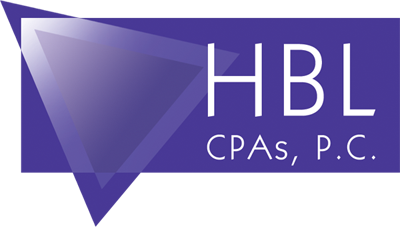Tax season tends to get a lot of attention, but successful tax planning isn’t just about scrambling to gather documents in April. The best strategy? Plan year-round! Whether you’re a small business owner or an individual looking to keep more of your hard-earned money, proactive tax planning can help you avoid surprises and maximize your savings. Let’s dive into some tax planning strategies that will set you up for success all year long.
1. Start Early—Plan for Taxes Throughout the Year
Many people only think about taxes when the deadline is looming, but by then, it’s often too late to make meaningful changes. Tax planning should be a year-round process. Setting aside time every quarter to review your financials and tax situation will allow you to make adjustments when necessary, rather than playing catch-up at the end of the year.
This also gives you the opportunity to strategically time your income and expenses. For example, if you know your business had an unexpectedly good year, you might decide to purchase necessary equipment before December 31 to take advantage of deductions in the current tax year. Regular planning ensures you’re always ahead of the game.
2. Maximize Retirement Contributions
One of the easiest ways to lower your taxable income is by contributing to tax-advantaged retirement accounts. For business owners, this might mean setting up and contributing to a 401(k) or a SEP IRA. For individuals, maxing out your contributions to an IRA or Roth IRA can help you save for the future while reducing your tax burden today.
Here’s a tip: If you’re running behind, don’t worry. Many retirement accounts allow you to contribute right up until the tax deadline for the previous year, which means you can still take advantage of the deduction even after the calendar year has ended.
3. Keep Track of Your Deductions
Deductions are a great way to lower your taxable income, but they only work if you’re keeping track of eligible expenses throughout the year. A big mistake people make is waiting until tax time to hunt down receipts and invoices. Instead, set up a system to track these expenses as they happen.
Common deductions to keep in mind include:
- Home office expenses (for business owners or freelancers who work from home)
- Business-related travel and meals
- Medical expenses (if they exceed a certain percentage of your income)
- Charitable contributions
- Education expenses related to improving your skills or business
By staying organized and tracking your deductions throughout the year, you’ll make tax time much easier and possibly discover savings opportunities you might have otherwise missed.
4. Utilize Tax Credits
Unlike deductions, which reduce your taxable income, tax credits reduce your actual tax bill—dollar for dollar. That makes tax credits extremely valuable! There are several credits available for individuals and businesses, but many go underutilized simply because people aren’t aware of them.
Some popular tax credits include:
- Earned Income Tax Credit (EITC): For low-to-moderate income earners, this credit can offer significant savings.
- Energy credits: If you’ve made energy-efficient improvements to your home or business, you could qualify for energy tax credits.
- Child tax credits: Families with children can benefit from credits that help offset the costs of raising kids.
- Work Opportunity Tax Credit (WOTC): Businesses that hire employees from specific target groups (such as veterans) can benefit from this credit.
Do some research or talk to a tax professional to ensure you’re taking advantage of every credit available to you.
5. Review Your Withholdings and Estimated Payments
Another common tax planning misstep is underpaying estimated taxes or not adjusting withholdings throughout the year. If you’re self-employed or have significant income that’s not subject to withholding (like investments or freelance work), you’ll need to pay estimated taxes quarterly to avoid penalties.
For individuals with traditional jobs, it’s a good idea to periodically review your withholdings to make sure they’re accurate. Did you get a raise or pick up a side hustle? These changes can affect how much tax you’ll owe. By adjusting your withholdings early, you can prevent a surprise tax bill (or refund) when it’s time to file.
6. Work with a Tax Professional
Even if you’re confident in managing your finances, tax laws are complex and constantly changing. Consulting with a tax professional can help you stay on top of any changes that may impact your situation. Plus, a tax expert can spot opportunities you might have missed, from maximizing deductions to taking advantage of new credits or incentives.
For business owners, working with a tax professional like HBL is especially important as your tax situation is often more complicated. From payroll taxes to depreciation on equipment, having someone who understands the ins and outs of tax law can save you a lot of headaches—and money—in the long run.
7. Plan for Major Life Changes
Significant life events can have a big impact on your tax situation. Marriage, divorce, the birth of a child, buying a home, or starting a business can all change your tax liability. If you’re anticipating a major life change, it’s smart to plan ahead and understand how it will affect your taxes.
For example, getting married might bump you into a higher tax bracket, or the birth of a child could make you eligible for additional tax credits. By planning for these changes in advance, you can adjust your financial strategies and ensure you’re not caught off guard when it’s time to file.
Year-Round Tax Success
Tax planning doesn’t have to be stressful. By staying organized, maximizing deductions and credits, and keeping an eye on your financial picture throughout the year, you can ensure that tax time is smooth and stress-free. Implement these strategies, and you’ll not only avoid costly surprises but also keep more of your money working for you.
Year-round tax planning puts you in control of your finances, giving you peace of mind and positioning you for long-term success. So don’t wait until the last minute—start planning today and enjoy the benefits of a proactive tax strategy all year long!




